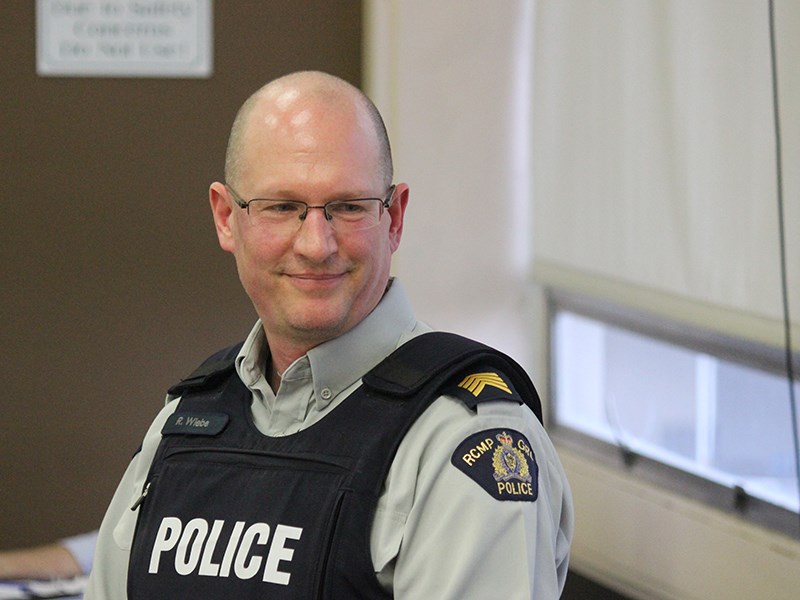Powell River RCMP staff sergeant Rod Wiebe delivered his annual report to City of Powell River Committee of the Whole on Tuesday, February 19.
Of the 5,750 calls for service in 2018, up six per cent from 2017, notable among the categories were mental health complaints and drug traffic investigations.
Drug investigations were up six per cent for the year, which resulted in numerous search warrant executions and drug seizures, according to Wiebe, including individuals attempting to set up a drug network in Powell River.
As a direct result of those drug investigations, Wiebe said RCMP were successful in getting release conditions on several Lower Mainland individuals, banning them from Powell River.
Wiebe pointed to police statistics supporting the alarming presence of illicit opioids in Powell River and high overdose deaths compared per capita with Vancouver’s Downtown Eastside.
“This year every heroin seizure tested positive for fentanyl,” said Wiebe. “Powell River has been identified as having one of the highest per capita overdose death rates in the province.”
RCMP response to mental health complaints were up two per cent. There were 247 calls in 2018 compared with 243 in 2017 and 203 in 2016. That total is expected to rise, according to Wiebe.
“This January alone these complaints are up 60 per cent,” said Wiebe.
While Wiebe does not expect RCMP calls to deal with mental health incidents to stay at 60 per cent, a five to 10 per cent increase in calls for this year is possible, which will further strain the detachment’s resources. The detachment includes 27 officers, 19 of which are paid by the city, seven provincially funded and one indigenous policing services position paid for a by federal/provincial partnership.
“[Mental health] calls are not calls where we go and leave,” said Wiebe. “They take from two to eight hours depending how long we have to spend in emergency before that person is seen by a doctor to determine whether they can be released or committed.”
There were 67 break and enters, up 10 per cent; theft under $5000 was up 41 per cent; and shoplifting was up. Theft from vehicles was down 31 per cent to 81 incidents from 119 in 2017, as was robbery, down 25 per cent.
Unchanged from 2017 was assaults at 125 investigations.
Sex offences were down 10 per cent from 22 in 2017 to 20 in 2018.
Violent crime was up approximately six per cent and property crime is up 17 per cent. By comparison, Wiebe said Vancouver Island showed increases of nine and 10 per cent respectively.
Wiebe said the major investigation of the year was the homicide that occurred south of Powell River.
“Resources from all over Vancouver Island were brought in to investigate the incident, which has resulted in charges being laid against an individual from Powell River,” said Wiebe.
During the BC wildfires last year, Powell River RCMP detachment deployed three members throughout the summer to assist in providing security to affected areas.
The overall Crime Severity Index for Powell River is down slightly to 65 from 65.04 in 2017 and from 78 in 2012. According to Wiebe, that number represents a weighting system that rates cities with populations over 10,000. The Canadian average is 70.96.
RCMP priorities for 2019 include road safety, crime reduction, and youth and domestic violence, according to Wiebe. He concluded his report by saying Powell River is a safe place to live.
“I maintain it's one of the safest communities I've ever lived in,” he said.



